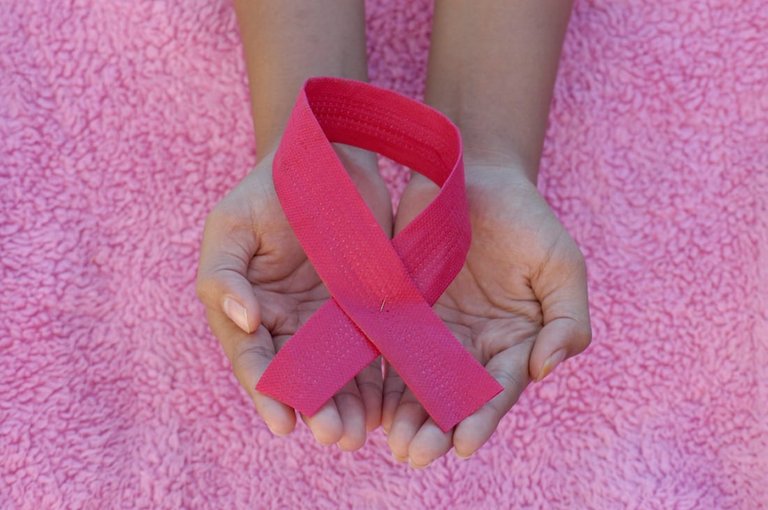Let's Discuss About Breast Cancer: What You Need to Know
Breast cancer is the second leading cause of cancer death in women, and it's also one of the most treatable. However, for every woman diagnosed with this deadly disease, there are an estimated 17 to 19 new cases that go undetected. Thankfully, advancements have been made in our ability to diagnose and treat this disease over the past several decades. We now know that breast cancer occurs throughout a woman's life cycle. It begins by hijacking a woman's healthy estrogen-producing cells (endometrial cancer), then spreads to other locations in the body and can even return from remission as a result of hormonal changes after terminating a pregnancy.
What is breast cancer?
Breast cancer is a kind of cancerous tumor that develops from the growths (or tumors) of two types of cells in the body, namely, breast endometrial cells and blood cells. There are many risk factors that can lead to breast cancer, but the main cause is abnormal blood flow in the body (angiogenesis). This is the process by which new blood vessels grow inside the body, either in the skin, the muscle or the brain. angiogenesis is triggered by certain growth factors, hormones and even ultraviolet rays.
In order to prevent or treat breast cancer, we need to understand how this process works in the body and how we can intervene with it. There are several treatments and medications that can be used for either prevention or treatment of breast cancer. These include chemo, radiation and hormonal treatments.

We will now discuss each of these in detail below:
Chemo : This type of treatment is usually only given to women who have proved difficult to treat with surgery and/or chemotherapy. It is also known as poison ivy treatment because it gives you a high dose of anti-inflammatory medication.
This may also cause internal bleeding and infections so be sure to discuss this with your doctor beforehand. This type of treatment is usually only given to women who have proved difficult to treat with surgery and/or chemotherapy. It is also known as poison ivy treatment because it gives you a high dose of anti-inflammatory medication. This may also cause internal bleeding and infections so be sure to discuss this with your doctor beforehand.Radiation :This is the most commonly utilized treatment for breast cancer. It is also known as a high energy or hard radiation therapy. The main advantage of this kind of treatment is that it can kill off all the cancer cells in a large area without affecting healthy surrounding tissue. However, it is also very expensive and may not be covered by your insurance.
This is why you should discuss this with your doctor before getting it. This is the most commonly utilized treatment for breast cancer. It is also known as a high energy or hard radiation therapy. The main advantage of this kind of treatment is that it can kill off all the cancer cells in a large area without affecting healthy surrounding tissue. However, it is also very expensive and may not be covered by your insurance. This is why you should discuss this with your doctor before getting it.
- Hormonal Therapy : This is a type of treatment that is used to treat bothswingaway (advanced) and early-stage (tumor confined) stages of breast cancer. It is also known as Lupron or Zyprexa. It is approved for treatment of both women and men with sexual Transm or BPH (benign prostatic hyperplasia).
This is a type of treatment that is used to treat bothswingaway (advanced) and early-stage (tumor confined) stages of breast cancer. It is also known as Lupron or Zyprexa. It is approved for treatment of men with sexual Transm or BPH (benign prostatic hyperplasia). hormonal therapy may also be used to treat other conditions, such as endometriosis and other forms of uterine cancer.
When is Breast Cancer Detected?

This is the most important question you can ask your doctor when it comes to your exam. You should ask him or her when your cancer is likely to be detected so you can prepare yourself for a possible diagnosis. You should also ask your doctor when you should consider getting a mammogram. You will most likely be referred to a specialty clinic when you are first diagnosed with breast cancer. Here, a doctor will examine you to make sure you are healthy enough to undergo surgery and will take a biopsy (a sample of your cancer) to determine the type and location of your cancer.
During this process, a doctor will likely use a special machine to look for suspicious areas on your body. A sample of your breast tissue will be removed for testing. A biopsy is usually done under local anesthesia. If you are too weak to stand unaided, you may be able to have your biopsy done under a general anesthetic.
How Is Breast Cancer Treated?
Depending on the type and location of your breast cancer, you may be given various medications and/or radiation treatments. You should discuss your treatment plan with your doctor. This list of common treatments for breast cancer includes chemotherapy, radiation therapy and hormonal therapy. Chemo is probably the most famous form of treatment for breast cancer, and it is still used to treat certain types of cancer.
However, it has many side effects, including hair loss and nausea, so it is rarely used as a first-line treatment. This list of common treatments for breast cancer includes chemotherapy, radiation therapy and hormonal therapy.
As you can see, the disease is very treatable. It just takes a lot of determination and a little luck. If you are found to have breast cancer, it is important to remember that there is always a chance that you may not have caught it from the initial biopsy. If you think you have been exposed to breast cancer cells, you should get tested again to be sure.
If you are treated well and follow the guidelines discussed in this article, you should have very low chances of developing breast cancer in the future. And with advances in treatment, there is a good chance that you will survive this disease for years.
(1). https://www.healthcentral.com/condition/breast-cancer
(2). https://amp.cancer.org/cancer/breast-cancer/if-you-have-breast-cancer.html
(3). https://www.webmd.com/breast-cancer/understanding-breast-cancer-basics
(4). https://www.healthline.com/health/breast-cancer
(5). https://my.clevelandclinic.org/health/diseases/3986-breast-cancer
Thanks for your contribution to the STEMsocial community. Feel free to join us on discord to get to know the rest of us!
Please consider delegating to the @stemsocial account (85% of the curation rewards are returned).
Thanks for including @stemsocial as a beneficiary, which gives you stronger support.
Thank you ☺️
This is a very important topic that has plagued us, however, most people know little or nothing about it.
Yes In fact some wait till it reaches a critical stage